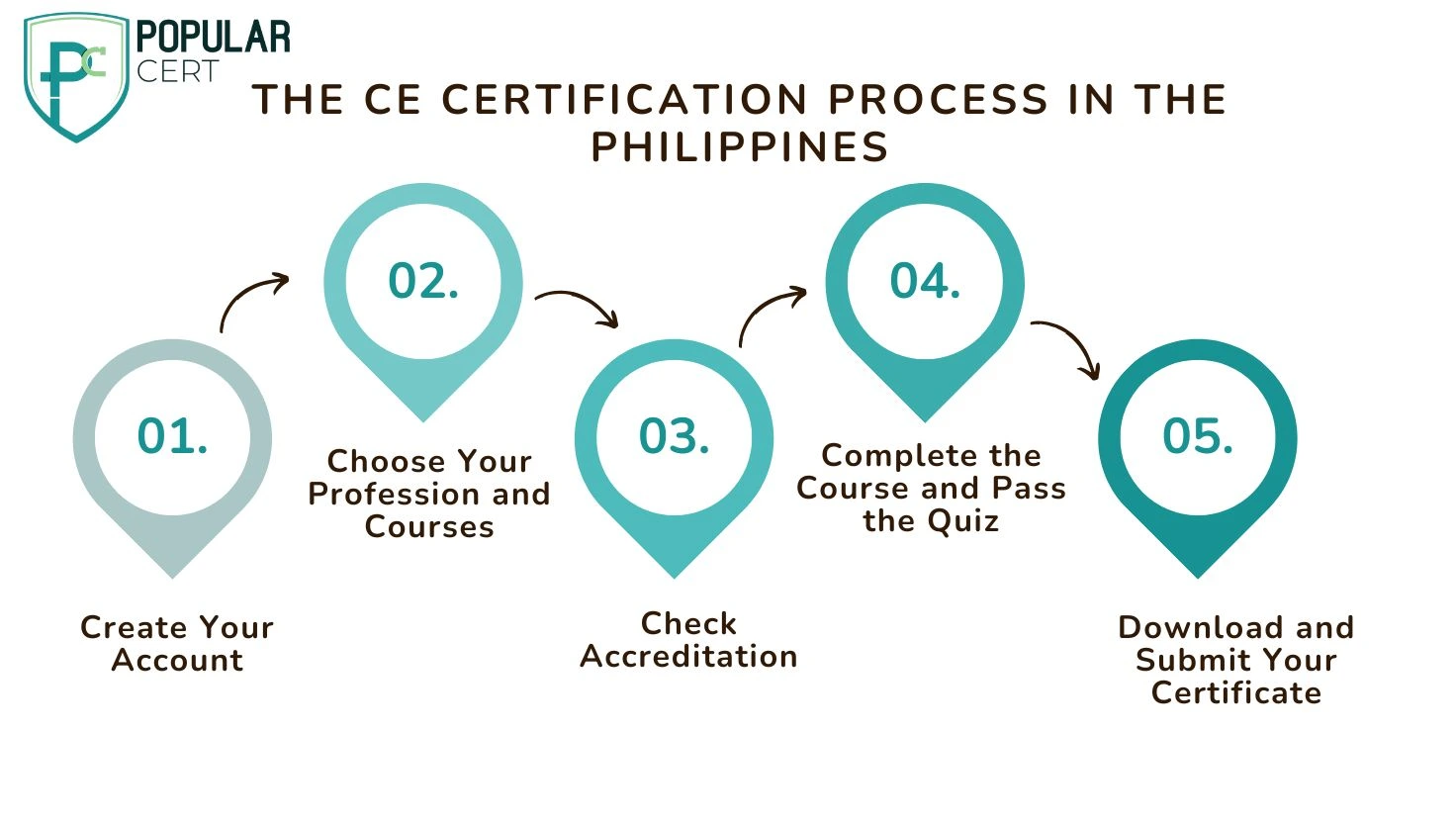Real Estate CE Certification Philippines: Compliance, Renewal & Career Growth

Introduction
Developments in the Philippine real estate industry call for enhanced transparency, compliance with laws, professionalism, as well as adherence to the prescribed laws. The real estate industry in the country employs practitioners, which include brokers, appraisers, and salespersons, who are expected to be conversant with the industry. This can be achieved through Continuing Education (CE) Certification.
This article will tackle Real Estate CE Certification in Philippines: its significance, prerequisites, compliance of law, responsibilities, and avenues for further development and training.
What Is Real Estate CE Certification?
Continuing Education (CE) in the realm of real estate refers to systematic learning activities designed for licensed professionals to retain and deepen their knowledge, skills, and competencies. Often, a professional’s license will need to be renewed through obtaining certain units, especially those set by the Professional Regulation Commission (PRC].
Who Needs It?
CE Certification is essential for:
- Licensed real estate brokers
- Real estate salespersons
- Property appraisers
- Individuals applying for PRC license renewal
- Professionals seeking to upskill and advance their careers.
Importance of CE Certification in Real Estate
- Legal Compliance under the CPD Act As stated in the CPD (Continuing Professional Development) Act 2016 (RA 10912), all licensed professionals are required to obtain a certain number of CE or CPD units, realtors included. A license holder incurs penalties for failing to achieve a minimum unit of CE, including license expiry or denial of renewal.
- Strengthening Trust in the Profession Professionals who earn CE certification have proven devotion to the field. Agents who comply with business ethics and laws tend to garner trust from clients and developers.
- Maintaining an Edge in a Competitive Environment The property market is impacted by new laws, economic shifts, and technological innovations. CE courses enable professionals to stay current with changes in the market, legal requirements, taxes, and appraisal standards.
The CE Certification Process in the Philippines
Earning CE certification isn’t complicated, but it does require a clear understanding of the PRC requirements and proper documentation. Here’s a streamlined breakdown of the process:
Step-by-Step Process:
Types Of Certification
- ISO Certification
- ISO 9001 Certification
- ISO 14001 Certification
- ISO 45001 Certification
- ISO 22000 Certification
- ISO 27001 Certification
- ISO 17025 Certification
- ISO 13485 Certification
- ISO 20000-1 Certification
- ISO 22301 Certification
- ISO 50001 Certification
- ISO 37001 Certification
- IATF 16949 Certification
- ISO 29001 Certification
- ISO 31000 Certification
- ISO 20121 Certification
- ISO 10002 Certification
- ISO 41001 Certification
Get Free Consultation
Our Clients



















- Check PRC Requirements: As a real estate practitioner, one is expected to achieve a minimum of 45 CPD units in a 3 year period.
- Choose an Accredited Provider: Enroll in CPD courses offered by recognized PRC providers. Classes are conducted through seminars, workshops, webinars, and self-directed online courses.
- Complete the Required Units: Attend sessions, engage with the materials, and complete any required evaluations.
- Obtain a Certificate of Completion: Following course fulfillment, the provider will issue Certificates for CPD completed.
- Submit to PRC During License Renewal: Submit your CPD certificates together with other documents during PRC license renewal.
Which Topics Are Included in the CE Courses?
In the Philippines, most CPD or CE courses are practical in nature, enabling real estate professionals to perform their roles better, and cover a range of imperative themes including;
- Laws and regulations on real estate in the Philippines
- Techniques for appraisal of real estate
- Zoning and land use policy
- Taxation of property and investment
- Ethics and consumer protection
- Real estate marketing and sales
Benefits of Real Estate CE Certification
- Career Improvement Completing CE programs enhances your professional portfolio. It positions you to take on more senior roles in real estate organizations or even in property development, appraisal, or consultancy.
- Gaining Differentiating Value Professionals with current CE certifications are most likely to get and efficiently serve clientele. It also puts you ahead of peers with only basic licensure.
- Legal Compliance Assurance With a valid CE certification and fulfilled CPD units, you are at liberty to renew your PRC license without the burden of legal non-compliance issues or penalties.
Key Consideration When Choosing a CE Provider
Given the numerous options available, selection becomes rather easier as you look into the factors that matter. Here’s a checklist that may assist you:
- Accreditation: Ensure the provider is officially recognized.
- Schedule Flexibility: Online classes, weekend lectures, or modular courses offer better accommodation for tight schedules.
- Course Content: Hire experienced trainers who look into the field’s real practices and make sure that the content is relevant and applicable.
- Support Services: Ask the provider if he/she offers documentation support for PRC submissions.
The leading providers, which we identified in the previous section, include Urban Institute, REBAP, and other accredited e-learning platforms. Popularcert may also assist you in connecting with approved training entities or help you fulfill your ISO-related compliance needs for real estate firms.
Common Errors in CE Certification
Common mistakes that even the most experienced professionals in the field make are:
- Waiting until the last minute to complete CE hours prior to license expiration.
- Signing up for classes with unlicensed training centers.
- Not keeping records of certification and course completion documents.
- Believing that CE hours completed for other professions or licenses count (always verify with PRC).
Avoiding these mistakes helps support effortless license renewals and reinforces the enforcement of dedicated professional development.
The Future of Real Estate Continuing Education in The Philippines
The supply of trained and accredited real estate professionals is increasingly scarce. It is expected that the continuing education (CE) framework within this domain will entail:
- An increase in online CPD platforms as well as AI-driven education systems
- Tailored programs for sustainable real estate, ESG compliance, or smart cities
- Stronger association of CE record systems with PRC license portals
- Micro-credentials for specific functions in real estate such as digital marketing for real estates.
As the real estate sector keeps growing and advancing, CE will be central to remaining current.
Unlock Your Real Estate Potential Today
Stay Compliant. Stay Competitive. Stay Certified.
If you are in need of a licence renewed, furthering your career in real estate, or seeking pathways for certification—CE will provide the next advancement.
At Popularcert, we aid individuals in attaining accredited CE providers and assist in compliance, as well as navigating ISO certifications for their real estate firm.
Reach out Popularcert now and get specialized assistance on Real Estate CE Certification in the Philippines and outside.
GET A FREE CONSULTATION NOW
FAQs
How many CE or CPD units do I need to renew my real estate license?
You typically need at least 45 units every 3 years, but always confirm with PRC.
Can I take CE classes online?
Yes, many accredited providers offer webinars and online modules approved by PRC.
What happens if I don’t complete my CE hours?
You may not be able to renew your license until you meet the CPD requirement.
Is CE the same as CPD?
Yes, in the Philippines, Continuing Education (CE) is commonly referred to as CPD (Continuing Professional Development) under RA 10912.
How do I check if a CE provider is PRC-accredited?
Visit the PRC official website or ask for the provider’s accreditation certificate.
